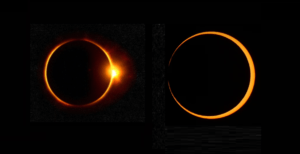2024 Annular Solar Eclipse: A Ring of Fire Event You’ll Miss
The annular solar eclipse on October 2, 2024, won’t be visible in India. The peak of the event will occur during nighttime in the region. However, countries like Argentina, Chile, and the United States will witness the full or partial eclipse.
CONTENTS: 2024 Annular Solar Eclipse: A Ring of Fire Event

2024 Annular Solar Eclipse: A Ring of Fire Event
2024 annular solar eclipse not visible in India
Amid the many lunar eclipses, there is an annular solar eclipse occurring on October 2, but it will only be visible in specific regions of the world, especially in its annular form, where the moon passes between the Earth and the Sun, creating a “ring of fire” effect.
Unfortunately, the peak of the 2024 annular solar eclipse, set to happen on October 3 at 12:15 AM Indian Standard Time, will not be visible in India. This is because the event will occur during nighttime in the region, making it impossible to witness in any form.
Annular eclipse visible in South America, partial elsewhere
As reported by timeanddate.com, the annular solar eclipse will start on October 2 at 7:12 PM IST and will end on October 3 at 3:17 AM IST, with the entire event lasting just over six hours. The full annular eclipse will be visible in countries such as Argentina and Chile, while a partial solar eclipse will be seen in regions including the United States, Mexico, New Zealand, Brazil, the Falkland Islands, Uruguay, and others.
There is also a notable connection between lunar and solar eclipses, as a solar eclipse typically occurs either before or two weeks after a lunar eclipse.
Annular eclipse creates ring of fire
A solar eclipse occurs when the moon moves between the sun and the Earth. Since the moon is much smaller than the sun, even when it appears to cover the sun entirely, especially when it is farther from Earth, the sun’s outer edge remains visible, creating a “ring of fire” effect around the moon—hence the term “annular eclipse.”
If the moon completely blocks out the sun, it is called a total solar eclipse. The next solar eclipse is not expected until 2026.
Check out TimesWordle.com for all the latest news
You must be logged in to post a comment.